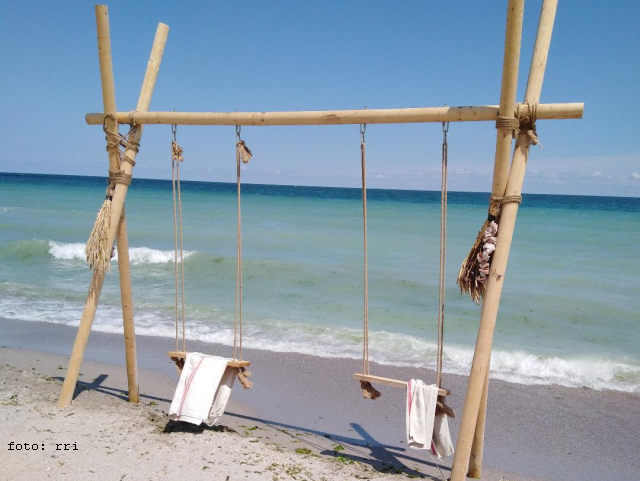Strategy to reboot tourism
The tourism industry has been badly hit by the coronavirus crisis.

Corina Cristea, 22.05.2020, 14:00
The
tourism industry accounts for 10% of employment worldwide and 12% of jobs in
the European Union and in order to recover, it needs coordinated international support
estimated at some 375 billion euros. The whole industry has been badly hit by
the travel restrictions and social distancing measures imposed by governments
around the world to contain the spread of the novel coronavirus. The crisis has
hit everyone working in tourism, from small businesses to big hotel chains and
travel agencies. The entire tourism industry may shrink by as much as 80% this year
compared with last year according to the World Travel and Tourism Council. The
situation is much worse than during the economic crisis of 2009, when the
industry shrank by only 4%.
Europe
has a very active tourist ecosystem. Trips, transport, accommodation, food,
leisure and culture account for almost 10% of the European Union’s GDP and
provides a significant source of employment and income in many regions. 267
million Europeans – representing 62% of Europe’s population – make at least one
private leisure trip a year and 78% of Europeans spend their holidays in their
countries of origin or other EU country, according to the European Commission
figures. Summer is a crucial season for the tourism industry, generating an
average income of 150 billion euros in Europe and 360 million arrivals.
Little
surprise then that the sector is a priority for the European Union, which has
come up with a set of guidelines and recommendations as part of a tourism and
travel package that lays down a global strategy for recovery in 2020 and
beyond, a joint approach to restore freedom of movement and eliminate
restrictions on EU’s internal borders in a gradual and coordinated way. The
package also lays down the framework for the gradual re-establishment of
transport while ensuring the safety of passengers and personnel and a
recommendation to make travel vouchers an alternative to cash reimbursement.
The European Commission also plans to support tourist businesses in several ways,
by ensuring liquidity, in particular for small and medium-sized enterprises,
and saving jobs with up to 100 billion euros in financial relief through the
SURE programme.
Transport
is a key element of tourism. The European Commissioner for Transport Adina
Valean, who was Romania’s pick for this post, told Radio Romania that it is not
yet possible to set a clear date for the normal or gradual reopening of
transport because it is not known yet how the pandemic will develop. She said,
however, that the rules adopted by the European Union lay down the conditions
of travel:
People
often ask me: ‘when will we be able to travel again?’ The answer to this
question must be given by the authorities of each individual member state and
must take into account a series of criteria relating to the epidemiological
situation in that country, criteria highlighted by my colleagues from the field
of healthcare. Secondly, we have to decide what are the destinations we
greenlight for transport, because, of course, we’re not expecting the situation
to be the same everywhere in Europe, for borders to reopen and quarantine and
isolation measures to be the same in all member states. These are decisions to
be taken by the national governments.
What
we do know is that reopening travel will be done in a flexible and coordinated
way and in several stages. As far as tourism is concerned, there are, however,
some clear conditions that have to be met in order to ease restrictions in a
given region or member state, namely that the number of new infections
decreases and remains low and that states ensure access to their healthcare
systems to tourists. In Romania, tourism has lost 6 million overnights in
recent months and some 250 million euros in revenues, according to the
president of the Hotel Industry Federation, Calin Ilie. He says that the
situation of the tourist sector is very complicated and compared the industry
with a train running at high speed and hitting a wall. The situation is
dramatic, he says and estimates the total impact of the tourism crisis on
Romania’s GDP at more than 5%.
90%
of hotels in Romania were closed because of the pandemic and 150,000 employees
out of the 180,000 working in the hospitality industry have been furloughed or
laid off, says Razvan Pascu, the founder of a tourist business. In his opinion,
the current situation may also be an opportunity for Romanian tourism:
It’s
clear that tourists’ behaviour will change. Most probably, they will no longer
prefer big, all-inclusive type hotels with a thousand people crowding in to get
their breakfast and will chose instead other types of holidays. I think road
trips will come back in fashion and that we’ll see more nature trips, people will
change their behaviour somehow. It may be an opportunity to promote Romania as
a different type of destination, a different type of travel with less mass
tourism, and I think Romania’s strategy should focus on this in the next two or
three years.
The
results of recent surveys show that people will give up holidaying abroad this
year and choose proximity tourism instead. (CM)






























